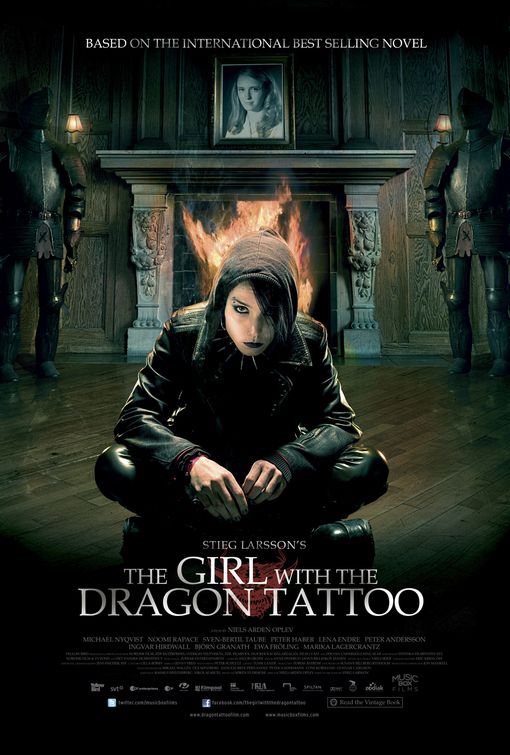It's arguable that Steig Larsson's very popular books are the biggest thing in entertainment to come out of Sweden since Ingmar Bergman or Ann-Margret. They've become a literary phenomenon of Dan Brown/Harry Potter magnitude, and have inspired a movie adaptation here in the States, with David Fincher attached to direct.


But of course, the Swedes have beaten us to the punch, having already adapted the entire trilogy, which were released there last year. Now they're coming stateside, with The Girl with the Dragon Tattoo in March and The Girl Who Played with Fire coming out this weekend. I only happened to see Dragon Tattoo now because it is a new instant-streaming film on Netflix, and so I figured I'd give it a chance.

For the uninitiated, The Girl with the Dragon Tattoo is adapted from the first book in Larsson's Millenium Trilogy, and focuses on newspaper reporter Mikael Blomkvist (Michael Nyqvist), who is charged with libel for a story he published about a wealthy businessman being involved in some shady activities. He is asked to help find a long-missing woman and, with the help of computer hacker Lisabeth Salander (Noomi Rapace), discovers a dark cover-up with life-threatening consequences.
The film has several interesting things going for it, namely in the way director Niels Arden Oplev filmed it. Dragon Tattoo feels like a homage to old-school Hollywood thrillers like The Firm, with its small-mission-uncovers-huge-secrets plot. The film is shot in dark colors, which really brings out the seediness and despair of the film. Nyqvist and Rapace give great performances as well, particularly the latter, who plays Lisabeth as a strong woman who isn't beyond her vulnerabilities.

Rapace and Nyqvist
However, there are some serious problems with the film. For one, there's a lot of seemingly unnecessary violence, particularly toward Lisabeth; in an early scene, a group of men attack her in a subway station for nothing other than she's a woman. In fact, the film's title literally translates from Swedish to "Men Who Hate Women," and that level of misogyny seems to be a large part of the film. Now, I have no problem with violence in film, but this kind of violence without any justification in the story is completely unnecessary. The story itself is also a mess, as many different things happen over the course of the film without any real explanation or connection. This may be because its the first installment in a trilogy, and therefore these various subplots will have meaning later, but I've heard these same complaints about the books as well (Larsson originally intended the story to stretch across 10 novels, but only finished three before his death).
I can't say that this film made me a convert, but it did make me interested in how the American version will turn out. Thematically, it reminds me of a lot of Fincher's pre-Oscar-hunt movies (i.e., before he did The Curious Case of Benjamin Button), and it could be an intiguing film in his hands. But the Swedish version stands as a flawed but visually engaging film that's at least worth checking out.
Comments